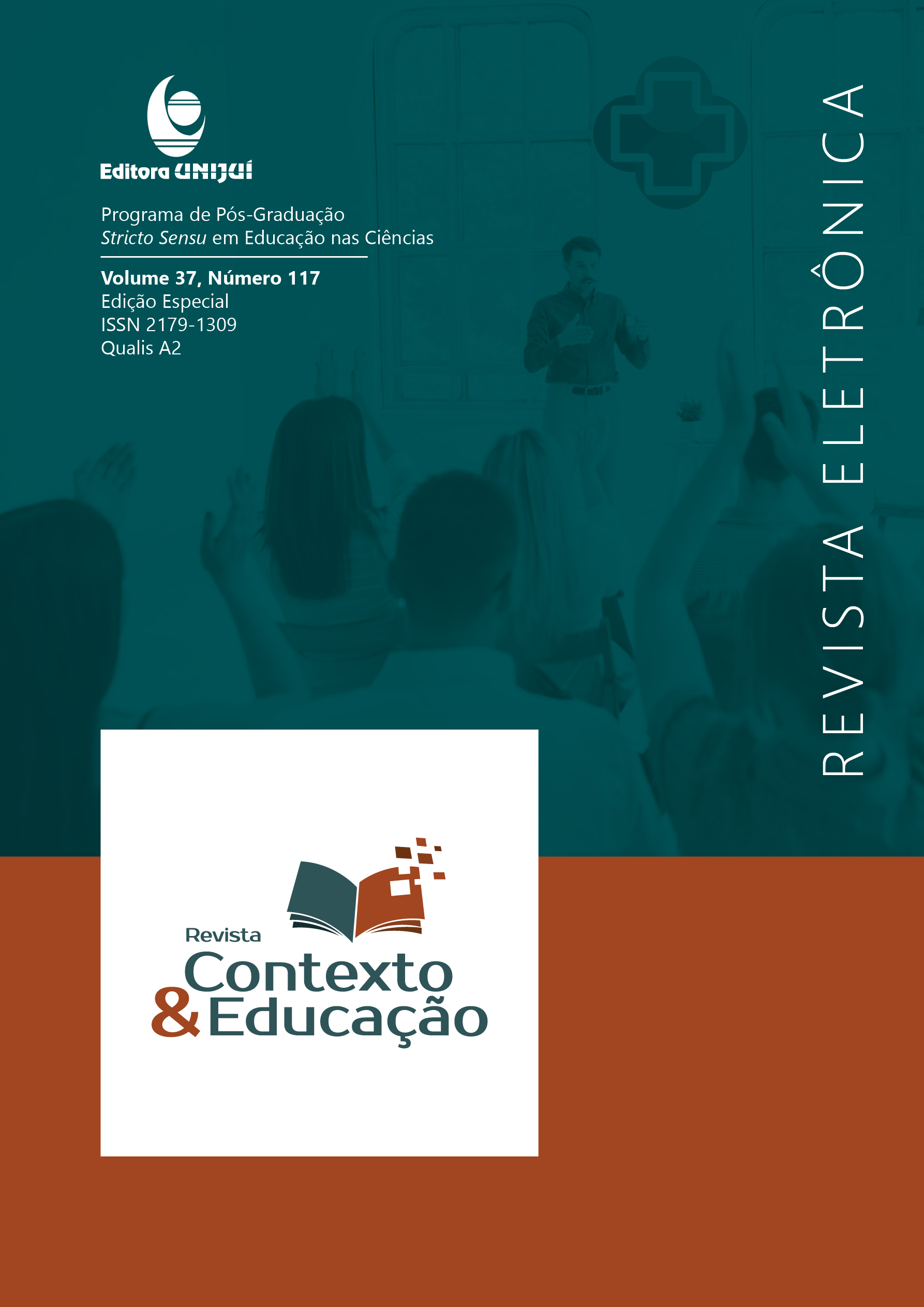PROFESSORES/EDUCADORES EM PANDEMIA COVID19: PERCEPÇÕES DE SAÚDE, ROTINAS PESSOAIS E COMPETÊNCIAS PROFISSIONAIS
DOI:
https://doi.org/10.21527/2179-1309.2022.117.13000Keywords:
perceção de saúde, ensino à distância, professores, rotinasAbstract
O confinamento imposto pela COVID-19 obrigou escolas e professores/educadores a adaptarem-se de imediato e a enfrentarem desafios impensáveis até o momento. O objetivo deste trabalho foi averiguar a relação entre perceções de saúde, alteração de rotinas e preparação para ensino à distância de professores/educadores portugueses em confinamento. A metodologia foi mista e o estudo transversal. Aplicou-se um questionário online a professores/educadores, lecionando desde o pré-escolar até ao ensino secundário. A amostra incluiu 304 docentes, sendo 247 mulheres e 57 homens, com as faixas etárias predominantes dos 41-50 e dos 51-60 anos, sendo o nível de ensino predominante o secundário. Procedeu-se à análise estatística descritiva e utilizando teste t, X2 e a correlação de Pearson. Quanto à perceção de saúde a maioria dos professores considerava-se com saúde razoável ou boa. A maioria não manteve as rotinas diárias com a sua família, assim como não se considerava preparado para trabalhar à distância. Encontraram-se correlações positivas significativas entre a perceção de saúde e a manutenção das rotinas diárias e a preparação para trabalhar à distância. Os resultados fornecem uma base de reflexão quanto ao modo como estes profissionais sentem fragilidade da sua saúde em contexto de sobrecarga de trabalho.
Downloads
Published
How to Cite
Issue
Section
License
By publishing in Revista Contexto & Educação, authors agree to the following terms:
All works are published under the Creative Commons Attribution 4.0 International License (CC BY 4.0), which allows:
Sharing — to copy and redistribute the material in any medium or format;
Adaptation — to remix, transform, and build upon the material for any purpose, even commercially.
These permissions are irrevocable, provided that the following terms are respected:
Attribution — authors must be properly credited, a link to the license must be provided, and any changes made must be indicated.
No additional restrictions — no legal or technological measures may be applied that legally restrict others from doing anything the license permits.
Notices:
The license does not apply to elements that are in the public domain or covered by legal exceptions.
The license does not grant all necessary rights for specific uses (e.g., image rights, privacy, or moral rights).
The journal is not responsible for the opinions expressed in the articles, which are the sole responsibility of the authors. The Editor, with the support of the Editorial Board, reserves the right to suggest or request modifications when necessary.
Only original scientific articles presenting research results of interest that have not been previously published or simultaneously submitted to another journal with the same purpose will be accepted.
Mentions of trademarks or specific products are intended solely for identification purposes and do not imply any promotional relationship by the authors or the journal.
License Agreement (for articles published from October 2025): Authors retain the copyright to their article and grant Revista Contexto & Educação the right of first publication.


